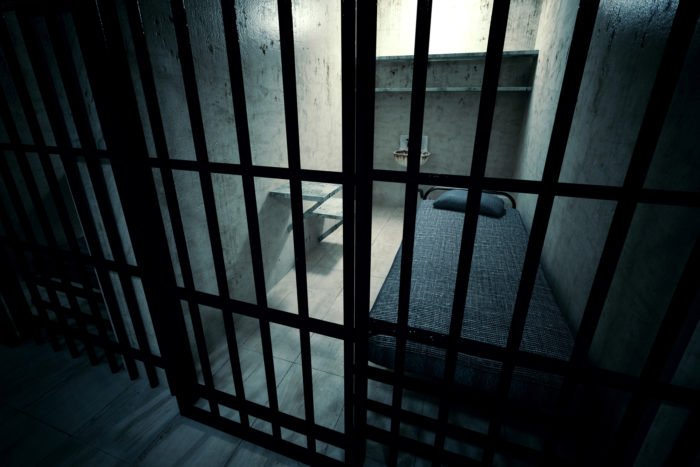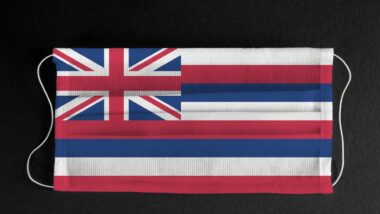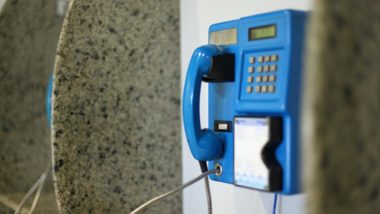Top Class Actions’s website and social media posts use affiliate links. If you make a purchase using such links, we may receive a commission, but it will not result in any additional charges to you. Please review our Affiliate Link Disclosure for more information.

The settlement will resolve claims from thousands of inmates such as Jessica Almaraz who claims that inmates were subject to unnecessary strip searches.
Almaraz, who was incarcerated at the Sheriff Department’s Century Regional Detention Facility several years ago, says she was subject to a strip search as soon as she reached the facility. She was allegedly strip searched a total of five times during the few weeks she spent in the jail.
Many of the strip searches at the facility were reportedly conducted in groups. Women were allegedly told to take off their clothes and spread themselves in the presence of other inmates. All the while, deputies reportedly yelled profanities and degrading comments and laughed at the women while they were forced to strip.
“They wanted to make us feel powerless,” Almaraz told the Los Angeles Times. “Whatever they said went, even if it meant making you feel like you’re not human.”
A class action lawsuit against the county claimed that the strip searches violated inmates’ 4th Amendment rights. Los Angeles County has agreed to pay $53 million to settle these claims in the largest settlement payout in county history.
The settlement will benefit around 93,000 female inmates who were incarcerated at the Sheriff Department’s Century Regional Detention Facility between March 2008 and January 2015.
If the U.S. District Court centered in Los Angeles grants preliminary approval of the settlement, a website will be established and more details regarding the claims and payment processes will become available.
In addition to paying millions of dollars, the county will spend $3 million to pay two consultants to review the jail’s policies and make recommendations for future changes. The goal of these consultants will be to address the struggles women face at the facility.
“The County is profoundly concerned about the practices that gave rise to this lawsuit, and is committed to making sure that reforms instituted by the Sheriff’s Department since 2016 will continue to build a culture that prioritizes safety, dignity and respect for inmates and staff,” Los Angeles County said in a statement.
Strip searches reportedly went out of practice at the Sheriff’s Department in April 2016. Instead, 98 percent of female inmates are searched using body scanners. The other two percent who are still searched using strip searches reportedly reflects women who are pregnant or who choose to have a strip search rather than a body scan.
According to the county, the settlement is a “significant resolution of a deeply troubling period” that they hope to move past. Although the county does not admit any wrongdoing, they have said that they are committed to reforming mass incarceration in Los Angeles County.
“We hope that this settlement will help bring healing and closure to the women affected by past practices, even as it underscores our determination to continue on the path of justice system reform,” the county’s statement reads.
Top Class Actions will post updates to this class action settlement as they become available. For the latest updates, keep checking TopClassActions.com or sign up for our free newsletter. You can also receive notifications when this article is updated by using your free Top Class Actions account and clicking the “Follow Article” button at the top of the post.
The inmates are represented by Barrett S. Litt and Lindsay Battles of Kaye McClane Bednarski & Litt, Donald Cook Attorney at Law, Colleen Flynn of the Law Office of Colleen Flynn, and Cynthia Anderson-Barker of the Law Offices of Cynthia Anderson-Barker.
The Lynwood Strip Search Class Action Lawsuit is Mary Amador, et al. v. Sheriff Leroy D. Baca, et al., Case No. 2:10-cv-01649-SVW-JEM, in the U.S. District Court for the Central District of California.
UPDATE: July 2019, the L.A. County jail strip search class action settlement website has been established.Click here to learn more.
UPDATE 2: December 2019, the Los Angeles women’s jail strip search class action settlement is now open. Click here to file a claim.
ATTORNEY ADVERTISING
Top Class Actions is a Proud Member of the American Bar Association
LEGAL INFORMATION IS NOT LEGAL ADVICE
Top Class Actions Legal Statement
©2008 – 2024 Top Class Actions® LLC
Various Trademarks held by their respective owners
This website is not intended for viewing or usage by European Union citizens.















26 thoughts onL.A. County Will Pay $53M To Settle Degrading Strip Search Class Action
No I’ve not received check
Can you please reissue all my checks have not received not even one payment address was unknown 44958 10th Street West unit 421 Lancaster California 93534
For all my ladies that to experience this degrading, violating to our body and self esteem and I remember when they would make us spread our private parts and Cough and then laugh and then make us do it all over again violating our rights our body but hang in there ladies we got this and nobody ever hast to go through this again